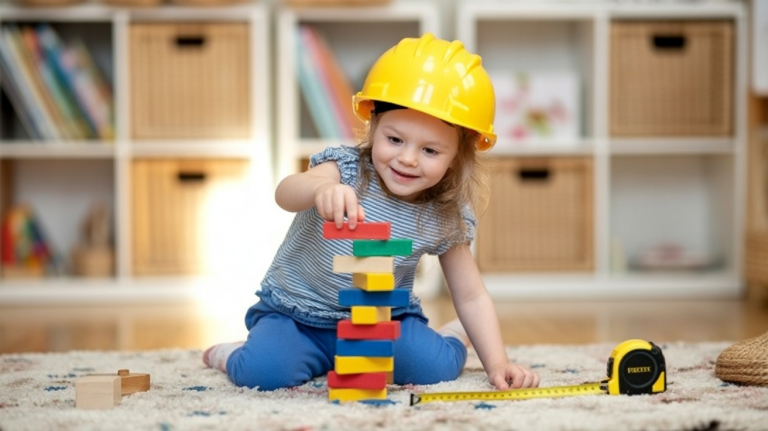Why Is My 2-Year-Old Not Talking? Speech Delay Guide

“Mama” and “Dada” are music to every parent’s ears, but what happens when those sweet sounds never come?
If your 2-year-old isn’t talking yet, you’re not alone in feeling worried. Many parents find themselves comparing their child to others and wondering if something is wrong.
But the fact remains that children develop at their own pace, and there’s often a big difference between what toddlers understand and what they can say out loud.
Some kids are chatterboxes by 18 months, while others take their time to find their voice.
Understanding the difference between language comprehension and verbal expression can help ease your concerns and guide you toward the right steps.
Let’s talk about what is typical, what could be problematic, and when you should get treatment.
When Do Children Usually Start Talking?
Every kid learns to talk at their own pace, and that’s normal!
At 12 months, most babies say their first real words like “mama” or “dada.” By 15 months, they know 10-20 words for people and their favorite foods.
At 18 months, they can say 20-50 words and put two together, such as “more milk” or “go car.” By age 2, most children know 200-300 words and can form simple sentences, such as “I want a cookie.”
Some children are early talkers who amaze everyone with full sentences by the time they are 2 years old. Others are late bloomers who suddenly start talking in paragraphs around age 3.
Both are perfectly normal! The important thing is to look at your child’s overall development, not just count words.
Two-Year-Old Speech Milestones

Here’s what most 2-year-olds can do with language:
| Speech Skill | What to Look For | Examples |
|---|---|---|
| Basic vocabulary | At least 50 words | Family names, foods, toys, and body parts |
| Simple sentences | 2-3 words together | “Want cookie,” “Daddy go,” “More please” |
| Following directions | One-step instructions | “Come here,” “Get shoes,” “Sit down” |
| Asking questions | Curiosity about the world | “What’s that?” “Where, Mama?” |
| Imitating sounds | Tries to copy new words | It may not be perfect, but the attempts are clear |
| Using gestures | Non-verbal communication | Pointing, waving, nodding, and head shaking |
Don’t worry if your child isn’t checking every box. Development happens in spurts, and some kids focus their energy on other skills like walking or problem-solving before tackling speech.
How to Know if Your Child Understands You
This is where many parents feel relieved. Your 2-year-old might not be talking much, but they probably understand way more than they can express.
Here are signs that show good language comprehension:
- They follow simple commands: When you say “Put the toy in the box” or “Come to mommy,” they do it without you showing them.
- They respond to their name: They look at you when you call them, even from across the room.
- They point to body parts: Ask them to show you their nose, eyes, or toes, and they can do it.
- They bring you things: If you ask for a specific toy or book, they can find it and bring it to you.
- They react to familiar words: They get excited when you mention going outside, taking a bath, or other routine activities.
- They understand “no.” They might not like it, but they know what you mean when you say no.
If your child shows these signs, their language development is likely on track, even if they’re not talking yet.
Why Toddlers Understand More than They Can Speak

It’s very common for toddlers to understand much more than they can say.
Think of it like learning to drive, you might understand all the rules of the road before you’re ready to get behind the wheel.
1. Brain development happens in stages: The part of the brain that processes language develops before the part that controls speech muscles. Your child’s brain is busy making connections and storing information.
2. Speaking is physically complex: Talking requires coordinating breathing, vocal cords, tongue, lips, and jaw all at the same time. That’s a lot for a little person to master.
3. Some kids are perfectionists: They might understand exactly what they want to say, but wait until they can say it clearly before trying.
4. They’re focusing on other skills: Your child might be putting all their energy into learning to walk, climb, or solve puzzles. Development doesn’t always happen evenly across all areas.
5. They have other ways to communicate: If pointing, gesturing, and leading you places works well for them, they might not feel the need to use words yet.
This explains why some children seem to “explode” with language suddenly; they’ve been understanding and preparing for months before they start talking.
Is Your Child Just a Late Talker or Something More?
Most late talkers catch up on their own by age 3, but some children need extra help. Here’s how to tell the difference:
| Late Talkers (Usually Catch Up) | May Need Professional Help |
|---|---|
| Understand what you say to them | Don’t seem to understand simple instructions |
| Use gestures and expressions | Rarely make eye contact or seem uninterested in people |
| Make eye contact and enjoy social interactions | Have lost words or skills they used to have |
| Play appropriately with toys | Don’t use gestures like pointing or waving |
| Have good hearing | Seems to have hearing problems |
| They are developing normally in other areas | Get very frustrated when trying to communicate |
Trust your instincts as a parent. If something feels off, it’s worth discussing with your pediatrician. Early intervention can make a huge difference when it’s needed.
Causes of Speech Delays in 2-Year-Olds
Several factors can cause speech delays in 2-year-olds, and identifying the underlying cause helps determine the best treatment approach.
Hearing issues are common; even mild hearing loss from frequent infections can affect children’s speech development. Watch for signs like not responding to sounds or speaking loudly or softly.
Oral-motor problems involve difficulty controlling speech muscles, often with issues eating, drinking, or drooling.
Some children experience developmental delays that affect language alongside other areas like walking, playing, or social skills, which may indicate broader developmental concerns.
Environmental factors play a crucial role, as children need extensive exposure to language through conversations and reading to develop proper speaking skills.
Does Your Two-Year-Old Need Speech Therapy?

Speech therapy can be incredibly helpful for children who need extra support with language development. Here are signs that speech therapy might be beneficial:
Red flags for 2-year-olds:
- No words at all by age 2
- Fewer than 25 words by age 2
- Not combining words into simple phrases
- Hard to understand even for family members
- Not responding to their name consistently
- Losing words or skills they used to have
- Extreme frustration when trying to communicate
1. What speech therapy looks like for toddlers: Speech therapy for young children is usually play-based and fun. Therapists use games, songs, and activities that feel natural to help children learn to communicate.
2. Benefits of early intervention: The earlier children get help, the better their outcomes tend to be. Young brains are especially good at learning new skills, so starting speech therapy early can make a big difference.
3. How to get started: Talk to your pediatrician about your concerns. They can refer you to a speech-language pathologist for an evaluation. Many areas also have early intervention programs that provide free evaluations and services for children under 3.
Remember, getting an evaluation doesn’t mean anything is wrong; it just helps you understand your child’s needs and how to support them best.
Conclusion
Every child’s experience with language is unique, and there’s a wide range of what’s considered normal development. Some children are early talkers, while others take their time to find their voice.
What matters most is that your child is making progress and finding ways to communicate, even if it’s not through words yet.
If your 2-year-old understands you well, uses gestures, and is developing normally in other areas, they’re likely just taking their path to speech.
However, if you have concerns about their development, don’t hesitate to talk to your pediatrician. Early support can make a world of difference when it’s needed.
Is your 2-year-old’s speech development on track? Schedule a consultation with your pediatrician today to discuss any concerns and get personalized guidance for your child’s unique journey.






